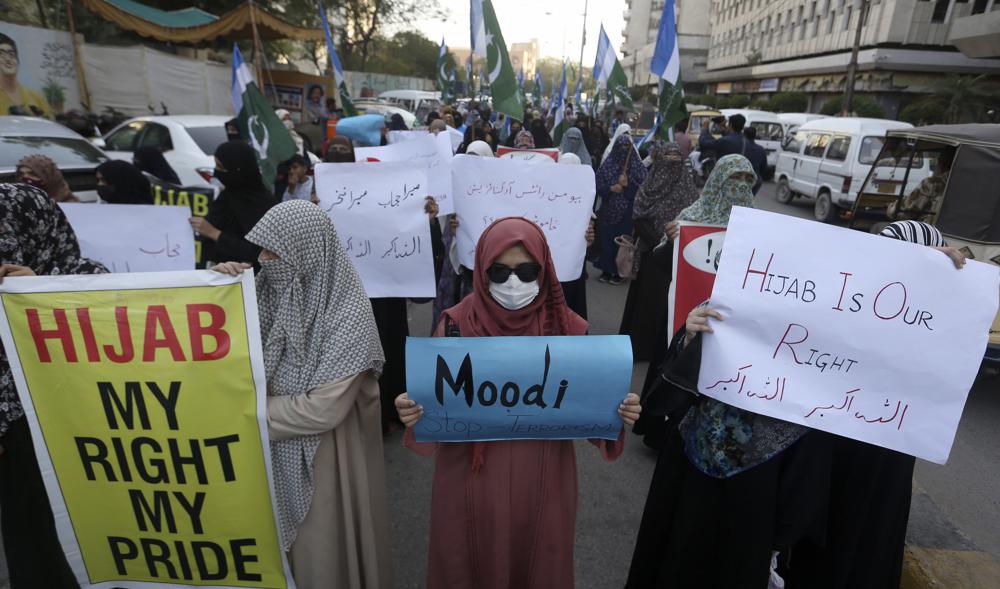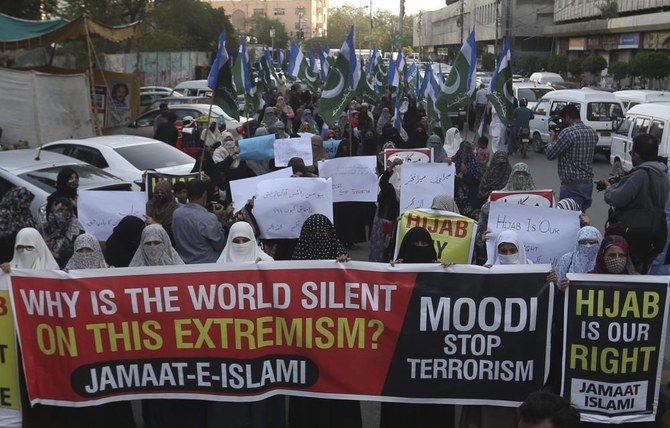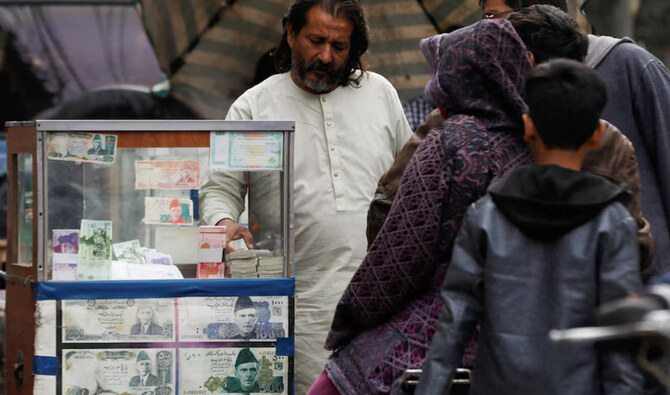KARACHI: Pakistani women rallied Thursday to denounce a ban imposed in a region in neighboring India on the wearing of the traditional headscarf, or hijab, by Muslim girls in schools.
Hundreds of women took to the streets in the southern port city of Karachi in a protest organized by a Pakistani religious political party, the Jamaat-e-Islami. And in the eastern city of Lahore, dozens of women torched an effigy of Indian Prime Minister Narendra Modi and also demanded the lifting of the hijab ban.

Women supporters of Jamaat-e-Islami hold a demonstration to protest against barring Muslim girls wearing hijab from attending classes at some schools in the southern Indian state of Karnataka, in Karachi, Pakistan, Thursday, Feb. 10, 2022. (AP Photo)
Earlier in the day, a court in Karnataka, a state in southern India, told students not to wear any religious clothing until it delivers a verdict on petitions seeking to overturn the ban on hijabs. The petitions were filed by students challenging the ban, which some schools implemented recently.
The issue grabbed headlines last month when a government-run school in Karnataka’s Udupi district barred students wearing hijabs from entering classrooms, triggering protests outside the school gate. More schools in the state followed with similar bans, forcing the state’s top court to intervene.
In the Hindu-majority India, where Muslims make up about 14 percent of the country’s almost 1.4 billion people, the traditional Muslim hijabs are not banned or restricted in public places and are a common sight.
However, violence and hate speech against Muslims have increased under Modi’s governing Hindu nationalist party, which also governs Karnataka.
Pakistan and India have a history of bitter relations. The two South Asian nuclear rivals have fought two of their three wars over Kashmir, which has been divided between them but claimed by both in its entirety.
















